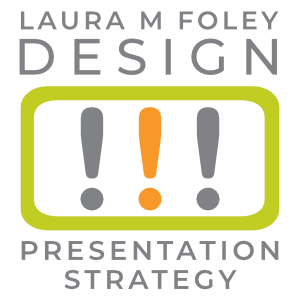“As I’m sure you’re all aware…”
“We all know that…”
“Is there anybody in the world who doesn’t like…”
If you attend live presentations such as meetings, conferences, and lectures, maybe you’ve heard one of these lead-in phrases. If you haven’t, congratulations! You’ve been spared the shame of having your ignorance pointed out. If you have heard a speaker utter these words, were you one of the elite, in-the-know people who required no further explanation or were you among the masses of the uneducated, the unenlightened?
There’s no such thing as “common knowledge”
Speakers often like to build a rapport with the audience by sharing a common bond. Maybe it’s a movie that everyone’s seen, or a recent paper that’s been published, or a current event that ties into the speaker’s topic. Whatever the case may be, they sometimes assume that the audience is familiar with their references. But the people in the room who are unfamiliar with what the speaker’s talking about can feel slighted or, in some cases, won’t be able to understand the speaker because of their lack of experience in what the speaker assumed is common knowledge.
The problem with common knowledge is that there is no such thing. There’s so much information in the world that there’s no possible way that everyone can know everything! Even within your own social circles, profession, or other type of group, I’m sure there are things you’re aware of that aren’t universally known. Conversely, I’m sure you’re constantly learning new things from your peers.
Why you should assume nothing
As a public speaker, your main goals should be that you communicate clearly and your audience understands what you’re telling them. Assuming they have prior knowledge of your subject can be a mistake, because not everybody does.
If you start a speech by saying “As I’m sure you’re all aware, Elon Musk’s Hyperloop would be a bold step toward easing traffic congestion and shortening travel times,” you’re assuming that everybody in the room has heard about the Hyperloop. Those who haven’t are left to hope that you continue on to explain it. But if you don’t explain it, you’re going to leave part of your audience behind.
It often takes very little time to explain references like these. It wouldn’t kill a speaker to say: “Elon Musk proposed a public transportation system called the Hyperloop. For those of you who haven’t heard about it, this would be a pneumatically-driven car that could theoretically get passengers from LA to San Francisco in about 35 minutes. Think about how that would ease traffic congestion!” Boom. Done.
It’s rarely a good idea to make people in your audience feel ignorant or stupid. That can irritate them and make them unreceptive to what you have to say.
Your turn
Have you ever assumed that your audience knew something they actually didn’t? What happened? Have you ever experienced this as a member of the audience?
